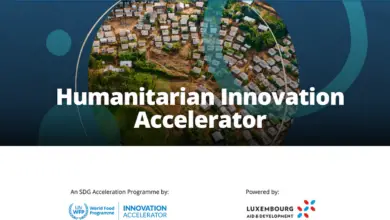Applications are now open for the UNESCO International Fund for Cultural Diversity (up to US$ 100,000 in funding)

Closing Date: 21 May 2025
Applications are now open for the UNESCO International Fund for Cultural Diversity (up to US$ 100,000 in funding)
Apply for funding
Through an open and competitive process, UNESCO funds innovative projects with up to US$ 100,000, implemented over a 12–24-month period. The projects are evaluated based on their relevance, feasibility, financial management capacity and expected results.
The International Fund for Cultural Diversity (IFCD) launches its 16th call for funding requests. The International Fund for Cultural Diversity (IFCD) is a key instrument of international cooperation and assistance for the UNESCO Convention on the Protection and Promotion of the Diversity of Cultural Expressions (2005). Its purpose is to foster the emergence of dynamic cultural sectors in developing
countries that are Parties to the 2005 Convention, through strengthening the means to create, produce, distribute and have access to diverse cultural goods and services.
As a multi-donor fund, the IFCD promotes South-South and North-South cooperation, while contributing to the achievement of the UN Sustainable Development Goals, including gender equality and poverty reduction. Since 2010, the IFCD has invested US$12.6 million through 164 projects in 76 countries in support of the creative economy and to bolster inclusive and sustainable economic growth. These projects cover a wide range of areas, from the development and implementation of cultural policies, capacity-building for cultural professionals and entrepreneurs, access to new markets, to greater participation in cultural life.
Eligible countries
Projects must be implemented and/or benefit eligible countries only (developing countries that are Parties to the 2005 Convention). Applications from international non-governmental organizations (INGOs) must be implemented in two or more eligible countries and demonstrate that the proposed project has an impact at the sub-regional, regional or inter-regional level.
Project Information
US$ 100,000 is the maximum amount that can be requested. Allocations will be sent in several installments:
-Beginning of the project: 50%
-Mid-way through the project: 30 %
-Completion of the project: 20%**
The application and accompanying documents must be in English or French
The project budget must include the allocation of resources for project communication. It must also include the costs of an external financial audit to be conducted at the end of the project. If approved, a funding contract will be signed between UNESCO and the applicant. All payments by UNESCO to finance the project will be made in US$ dollars.
Types of eligible projects
- Projects submitted by public authorities and institutions that:
- Projects submitted by non-governmental organizations (NGOs) that:
- Strengthen capacities of civil society focusing on policy participation, communication and/or networking
- Contribute to inform policy making, including monitoring and evaluation activities to determine the impact of cultural policies and measures to promote cultural industries
- Strengthen the pedagogical and organizational capacities of educational, vocational and technical training institutes in the cultural and creative sectors
- Create new financing opportunities and promote access to national and international markets for cultural goods and services
- Promote the development of cultural industries in the digital environment, in accordance with the roadmap for the Implementation of Guidelines to Promote the Diversity of Cultural Expressions in the Digital Environment
- Strengthen participation in cultural life, including measures to promote engagement of vulnerable groups (including persons belonging to minorities and indigenous peoples) in the creation, production, distribution and access to diverse cultural expressions
- Create and implement measures to promote gender equality in the cultural and creative sectors
- Develop tools that contribute to decision-making and planning (mappings, sustainable statistical collection and processing systems, sectoral strategies, etc.)
- Create and/or strengthen public cultural agencies and institutions essential to the development of cultural industries, including developing the expertise of civil servants
- Establish and/or strengthen financing and market development mechanisms for cultural goods and services
- Implement international cooperation agreements and treaties aimed at a more balanced exchange of cultural goods and services
- Create and/or strengthen the pedagogical and organizational capacities of educational, vocational and technical training institutes in the cultural and creative sectors
Click Here To Apply
Follow Opportunities For Everyone on Social Media




